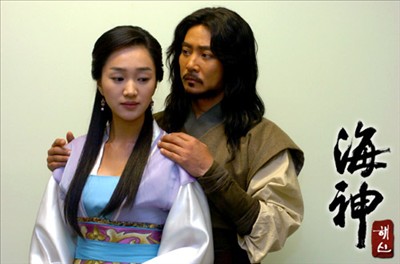
in order to stop the coastal pirates from selling Silla slaves in China. Jang quit the army and returned to Silla in 828 A.D. It was the first time for a foreigner of a low social status to win a military position in China. At the age of 30, Jang was appointed to military office for his outstanding skills. Knowing that he could achieve his career goals as a foreigner status abroad, Jang moved to China where he joined the Tang Army. Jang is believed to have been born into a peasant family as he was called by his original first name Gungbok, without a surname.Īccording to historical records, Jang was adept in martial arts as a teenage boy but was unable to pursue a military career in Silla mainly due to his low social status. Although much of Jang’s origins remain unknown to date, a few historical records indicate that Jang was born in Wando Island sometime in the late 8th century during the late Unified Silla period. Jang Bogo rose to fame and was called the “God of the Seas” by his people as he ruled the Northeast Asian Sea. Therefore Silla people were no longer enslaved on the high seas. The king gave Jang and army of 10,000 men and bade him to pitch camp of the island. I beg Your Majesty to build headquarters at Chonghae to prevent pirates from kidnapping our people and shipping them west.Ĭhonghae, now Wondo Island, was a strategic point on Silla’s sea routes. To the king he reported, “Everywhere in Tang they use our people as slaves. Upon return to Silla, Jang had an audience with King Heungduk.

He went to Tang (China), where he because Wu-ning-chun, and he was peerless in horsemanship and wielding a spear.

Jang Bogo was a man of Silla whose clan site and ancestors were unknown. As Written In the Samguk Sagi (History of the Three Kingdoms) You can see his story played out as in the drama, Emperor of the Sea. Jang BoGo 장보고 張保皐 ( also known as: GongBok 궁복(弓福) )Īs Seen On TV: Jang Bogo is famous for establishing Korea’s maritime dominance in East Asia by essentially owning the routes connecting Korea, China and Japan during the Unified Silla period.


 0 kommentar(er)
0 kommentar(er)
